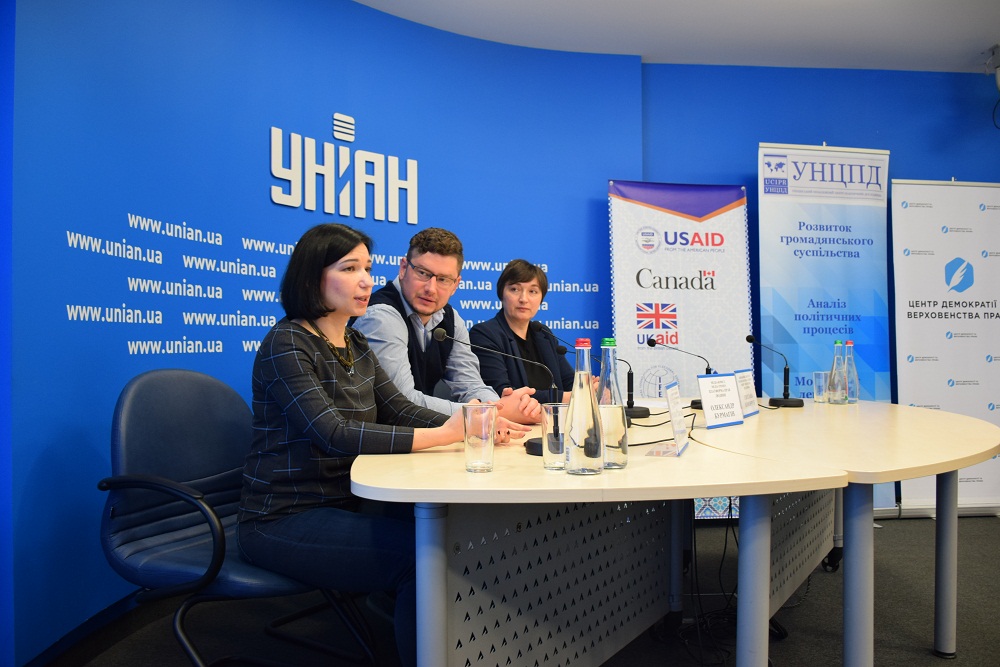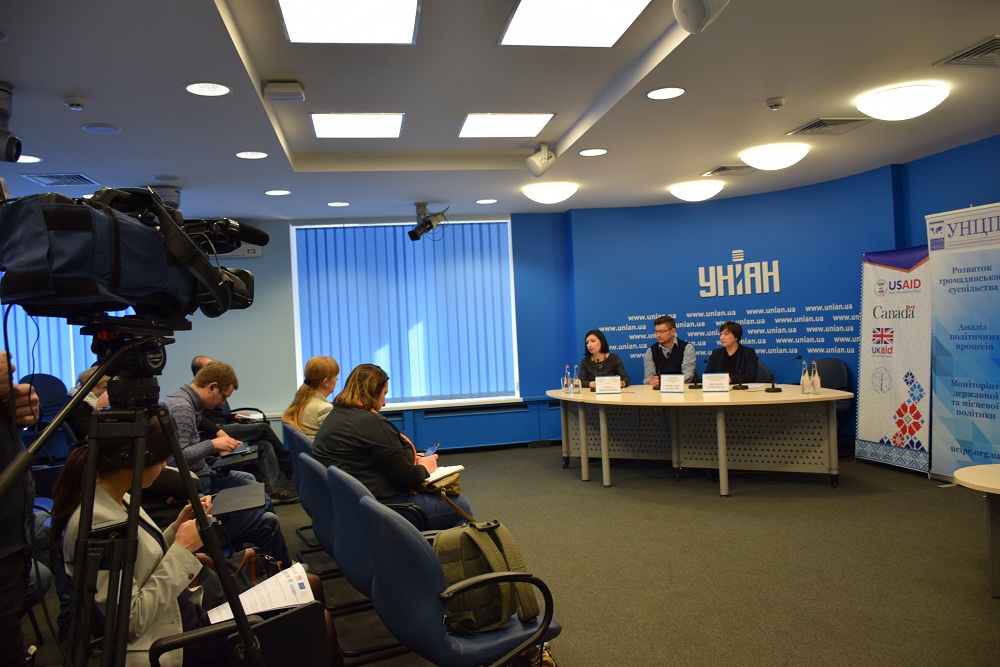A transparent and competitive electoral process means aspirations of the Ukrainian society after the Revolution of Dignity, and expectations that these principles of transparency and competitiveness will serve as the basis for new rules of parliamentary elections.
Meanwhile, reforms in this direction have never begun. On 17 October 2017, the Verkhovna Rada of Ukraine rejected a bill that could have formed the basis for the movement towards a proportional electoral system with regional open lists, which is both an obligation of the majority of parliamentary factions and a repeated recommendation by the Parliamentary Assembly of the Council of Europe. There is a possibility that Ukrainian lawmakers will also vote down the draft electoral code No. 3112-1, as stated at a press conference on 1 November 2017 by representatives of non-governmental organizations that have been working for long in the field of democracy and elections and that are members of the Reanimation Package of Reforms civic initiative – Olha Aivazovska (Civic Network OPORA), Oleksandr Burmagin (Human Rights Platform), and Svitlana Kononchuk (Ukrainian Center for Independent Political Research). They drew attention to the absence of an open public debate on the content of changes in the rules for elections and electoral system, in particular, regarding the timeframe of the reform, and political leaders of this process.

Non-governmental representatives reminded that to date, the fate of the electoral reform depends largely on the position of the Verkhovna Rada regarding the consideration of draft electoral codes, one of which (No. 3112-1) contains a proposal for holding parliamentary elections under a proportional system with open lists, and another (No. 3112) – under a proportional voting system with the nomination of candidates from political parties in nomination districts, similar to that used during the local elections of 2015.
If the parliament delays the setting of priorities of the electoral system reform and ignores the need to harmonize the rules for elections with a new social situation, the society will face the shortcomings of the current closed-list system during the 2019 elections – the non-transparent formation of the Verkhovna Rada, clientelism, conditions encouraging the use of administrative resources and political corruption, difficulties in voting for internally displaced persons and, as a result, insufficient representation and legitimacy of the Ukrainian parliament. Given the situation, the next chance to update the election rules could come only in 2024.
According to Olha Aivazovska, the Electoral and Parliamentary Programs Coordinator at the Civic Network OPORA, the progress on reforming the electoral system should be ensured through political leadership and consensus on a number of issues. “It is very difficult to answer without sarcasm the question of whether the 2019 parliamentary elections will be held under a new system – a proportional voting through open party lists, which will replace single-mandate constituencies tending to encourage corruption during elections – because the Verkhovna Rada of Ukraine currently shows the absence of any dialogue or preparations for a serious consideration of the draft electoral codes,” Olha Aivazovska said. “If political actors continue to imitate discussion or consideration of the important and crucial comprehensive legislative initiatives, the draft electoral codes will have the same fate as the previous three draft laws on elections of people’s deputies,” she added.
Oleksandr Burmagin, a media expert, lawyer, and member of the Human Rights Platform, claims that “information should work for elections.” In his words, there are more than 150 public registers in Ukraine that provide access to a wide range of information, but voters could fully use this information only under transparent election procedures. “With open lists, information really matters, and votes are consciously cast for every candidate. This information ensures a fairer distribution of votes. After all, every citizen votes not only for a particular party, but also for a particular candidate from this party, who, even if he or she is 150th on the party list, will get into the parliament through winning more votes than the 15th or 25th nominee who failed,” the expert pointed out.
“The discussion on the inclusiveness of the electoral system should continue. Or, to be more precise, it should be launched. Because in all three years since the Maidan protests, we have not heard either a frank discussion of this issue at the political level, or explanations to the public why the open-list option is unacceptable. We have not seen efforts to develop or seek a compromise option of a voting system as well,” Svitlana Kononchuk, the Executive Director of the Ukrainian Center for Independent Political Research, emphasized. She also noted that the election rules in the broader sense are a framework for the development of political parties. The greater openness of election procedures is intended to become the next step towards the democratization of political parties, after the requirements for gender equality, and party funding from the state budget. “Unlike the closed-list system, open-list elections are an element that encourages political parties to change their strategies for nominating candidates for elected offices and are one of the means of reducing the clientele’s role in the system of representation,” Svitlana Kononchuk underscored.
Non-governmental experts propose the Verkhovna Rada of Ukraine to hold a public discussion in order to find the main points for building consensus on fair democratic elections, which will be in line with international and domestic political commitments, and ensure fair election results, recognized by Ukrainian voters. The electoral reform should be systemic and incorporate a number of positive changes, including, in particular, the inevitability of punishment for election-related crimes, and the responsibility for the organization of elections by the legitimate Central Election Commission.

The press conference is part of the project on “Public Support for Reforming the Parliamentary Electoral Law”, carried out by the Ukrainian Center for Independent Political Research and the Group on reforming the electoral law of the Reanimation Package of Reforms with the assistance of the International Foundation for Electoral Systems and the Center for Democracy and Rule of Law under the project on “Strengthening the RPR Coalition”, and funding from the European Commission, the United States Agency for International Development, the Global Affairs Canada, and the British Embassy in Ukraine.
Download
For additional information about the press conference, please contact Olena Zvarych, the UCIPR Press Officer (tel. +38 050 384 86 65).
